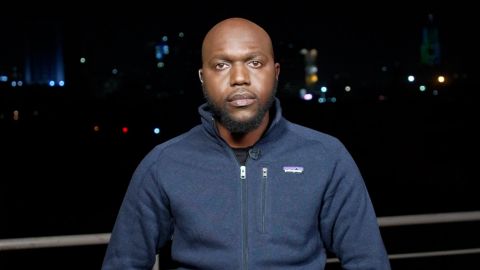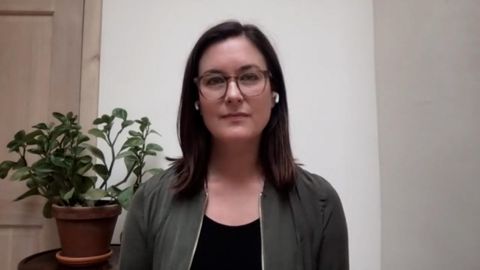Read Transcript EXPAND
LARRY MADOWO, CNN CORRESPONDENT: The uncomfortably situation for me, Christiane, is that I’m a reporter. I reporter facts here on CNN. I don’t give opinions. And yet, the truth here, and you say it is about facts and not neutrality. The truth here is that there is an equal world where poorer countries like many of the countries that I reported in Africa just don’t have access to vaccines. And even when they follow the World Health Organization guidelines like social distancing and masking like Rwanda has done, it’s got one of the strictest rules about making sure you wear a mask and socially distancing and restrictions on gatherings, they are still right now in a new lockdown because they were just overrun by cases. The Delta variant is 60 percent of the cases they are seeing there and they have got — they had to, again, introduce new lockdown. And so many people that I’ve reported on know this firsthand. Not just my family but also many of the people I’ve been hearing from. People across the continent. South Sudan next door, the world’s youngest nation, has completely run out of vaccines. They’ve shut down the program because they don’t know when they will be getting new vaccines. In Uganda, they are back end of another lockdown. Tunisia’s health care system, Christiane, has collapsed entirely.
CHRISTIANE AMANPOUR: I actually want to play a little clip from your piece from Uganda and just to say also that last week, the World Health Organization regionally said that the cases have increased by 43 percent in a matter of just weeks. So, here is a clip from your piece from Uganda.
(BEGIN VIDEO CLIP)
MADOWO: Every patient in this wing of this small hospital is on life support. It’s also taking a strain on the staff. Some have had to do 24 hour shifts because the need is far greater than the medical professionals available.
MADOWO (voiceover): Average age of the patient is 40, doctors tell us. Youngest was only 18.
DR. ERASMUS EREBU OKELO, TMR INTERNATIONAL HOSPITAL: Why exactly are we seeing young people? One, for sure, it is a more aggressive strain. But the other thing also could be that, you know, after the first wave we, might have gotten quite excited enough to slacken on our preventive measures.
(END VIDEO CLIP)
AMANPOUR: I mean, it’s such a stark example of what we now know. At the beginning, everybody was saying, we’re all in the together. The whole world is facing this. But the truth is, we’re not all this in together in the same way.
MADOWO: No, we’re not. And that is quite clear. When you see the entire African continent has only vaccinated 1.5 percent of the population. Of the 3.5 billion vaccines that have so far been issued around the world, only 1.6 percent are Africans. That’s how stark it is. So, I think when you hear the mantra that we’re all in this together, you can see the holiness of it because not every part of the world has had equal access to vaccines. Even when some African countries could afford to buy vaccines, they were just not available. When countries in the west like the U.K. and U.S. and Canada have vaccines — enough vaccines to vaccinate their populations several times over. And yet, people here are dying.
About This Episode EXPAND
John Kerry; Katharine Wilkinson; Larry Madowo; Rep. James Talarico
LEARN MORE



